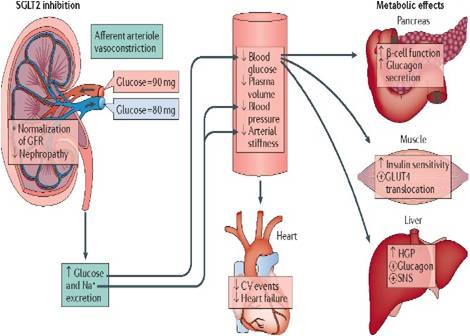Abstract
Diabetes is increasing globally at a very high rate. Along with the growing prevalence of diabetes, there is an increase in the burden of the complications associated with diabetes. These complications not only affect the quality of life but reduce productivity, increase the economic burden and if not treated can lead to irreversible organ damage and even death. The progressive nature of diabetes adversely affects the efficacy of currently available hypoglycemic agents. The presence of comorbidities, desire to avoid common medication-related side effects and drug interactions further complicate the treatment process. There is still an unfilled therapeutic need for new pharmacological strategies that specifically target the complications of diabetes. Thus, new therapies that target the basic pathophysiology of diabetes complications and show organ-specific effects independent of glycemic control would be particularly helpful. The present review is an overview of promising, novel therapeutic strategies for optimal end-organ protection in diabetes.
Full text article
Generated from XML file
Authors
Vipul Gupta, & Girish Khurana. (2023). Novel strategies for optimal end - Organ protection in diabetes. International Journal of Research in Pharmaceutical Sciences, 9(4), 1418–1422. Retrieved from https://ijrps.com/home/article/view/4485
Copyright (c) 2018 International Journal of Research in Pharmaceutical Sciences

This work is licensed under a Creative Commons Attribution-NonCommercial-NoDerivatives 4.0 International License.

